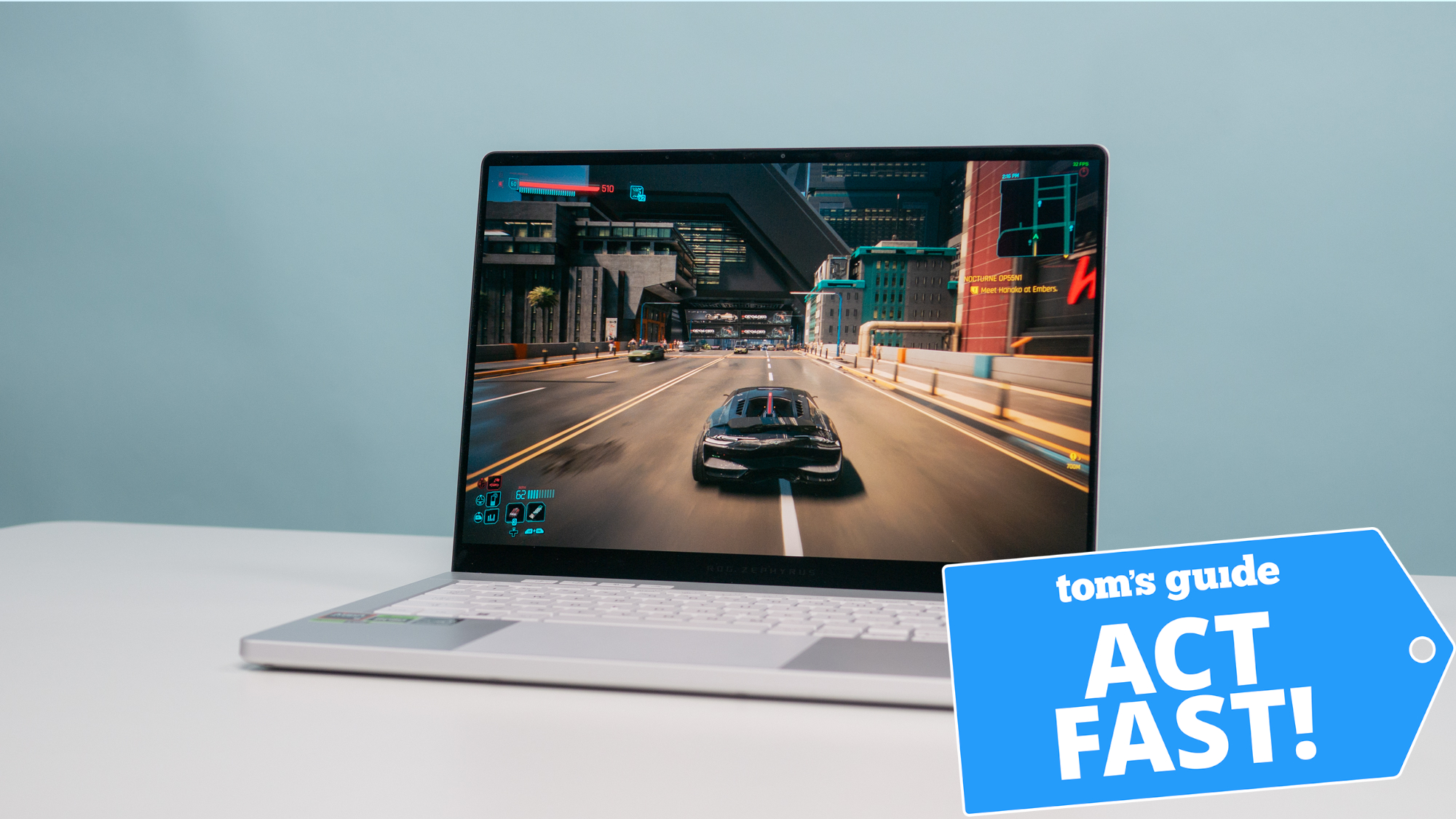Humane AI Pin — could this wearable replace your phone?
The rise of AI hardware is coming
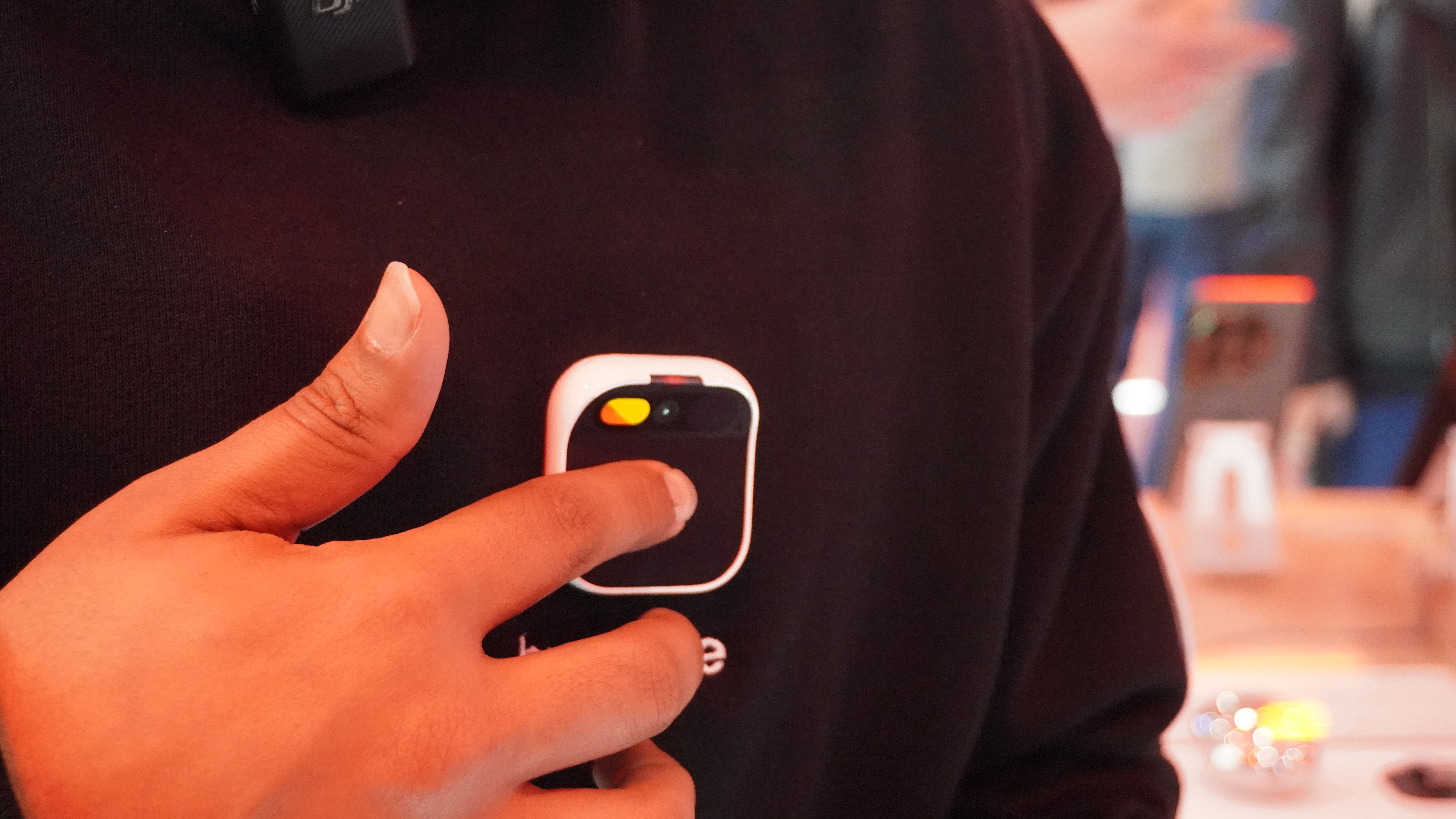
A new category of devices built around artificial intelligence models is starting to emerge on the scene. Many of them have the goal of ending the dominance of the smartphone as our primary intelligence source.
The AI Pin from Humane is one such device. It's a square, Star Trek Communicator-styled pin that sits on your shirt and listens out for when you need help.
The pin got its first big push during Mobile World Congress (MWC), the world's largest mobile device conference, in Spain this week. Appearing at a mobile-first conference is no coincidence — and a big hint at the target market for this small AI-powered hardware device.
What is the Humane AI pin?
The Humane AI Pin was first revealed in November last year and was one of the first in this new AI hardware category to garner mass attention.
Designed by a pair of former Apple engineers, the wearable can be attached to a shirt, sit in your hand or even hang out in your pocket and is there when you need it.
Talking to the device like you would any AI assistant, the goal is to have the helper available and not just another app on your phone screen, according to the founders.
Currently only available in the U.S. and for preorder, it is priced at $699. Using the pin also requires a $24 a month subscription to access the connectivity, data storage and AI services. This makes it a tough ask for a device in a new category of tech.
Sign up to get the BEST of Tom's Guide direct to your inbox.
Get instant access to breaking news, the hottest reviews, great deals and helpful tips.
What can the Humane AI Pin do?
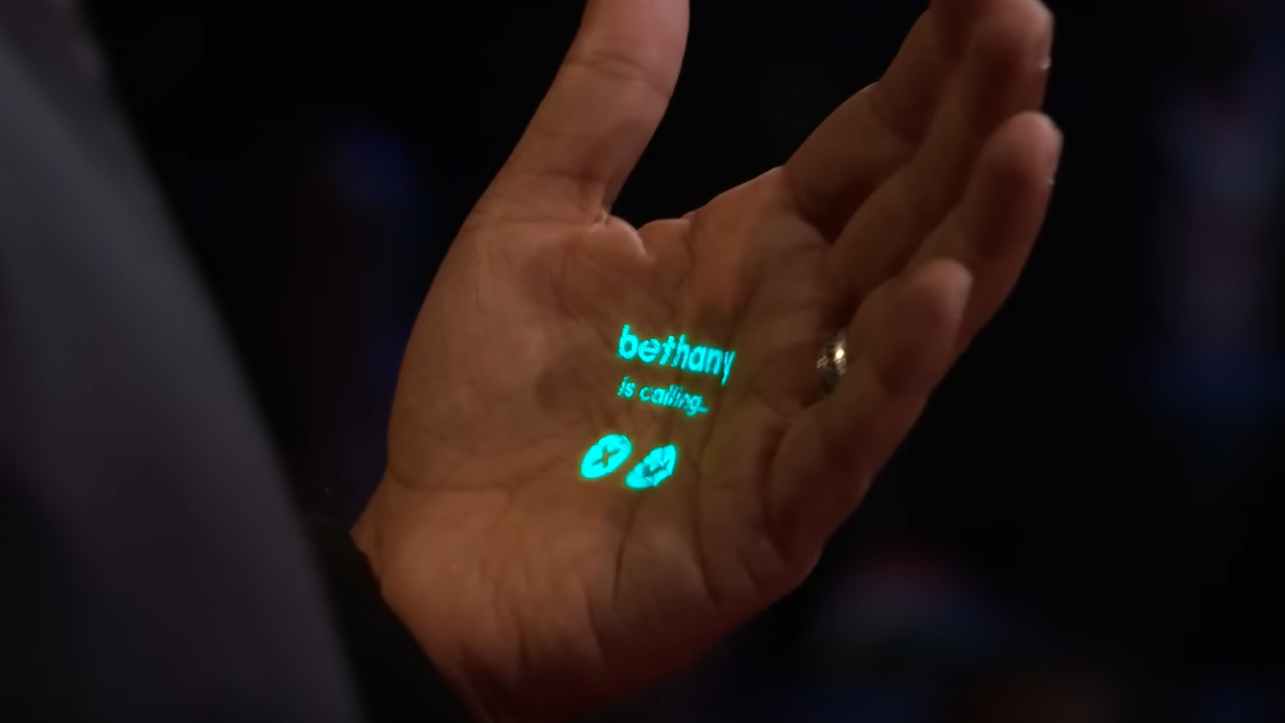
The Humane AI Pin is designed to be an "always on expert" available at your finger tips or sound of your voice. CEO Bethany Bongiorno says the goal is to make it easier to "live in the moment".
Activated by a touch, and with a projector showing information on your hand, the Pin can answer a range of questions on everyday tasks such as unit conversion. It can also offer information on live events including the weather.
One of the more intriguing features, and something that made me see it like a Star Trek communicator is its ability to live translate between 50 languages. You could go into a local cafe and order a meal without having to learn the language.
More than just a chatbot in a box
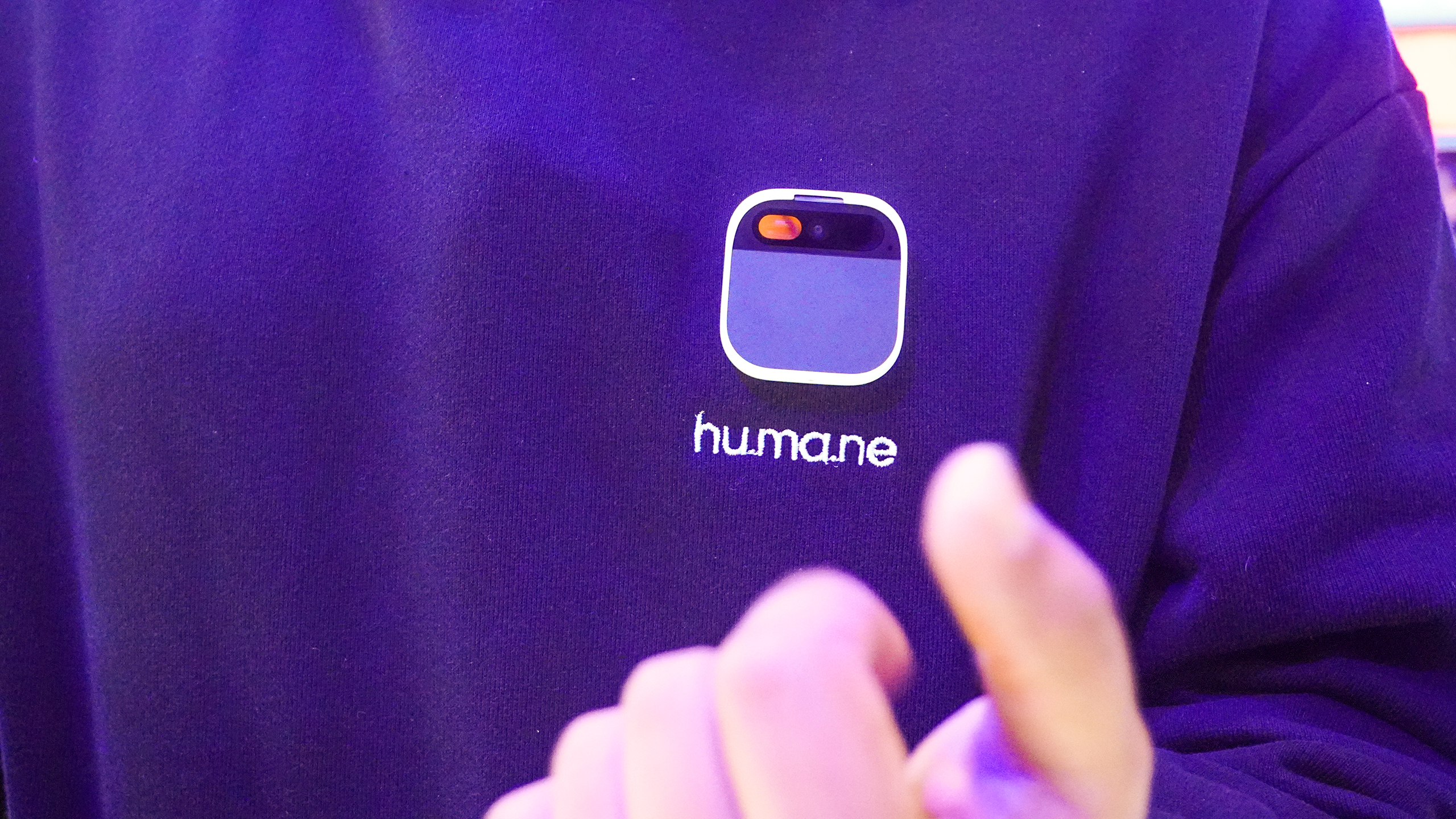
On the surface the Humane AI Pin might seem like just a chatbot in a box, but in reality it's a fully-functional hardware device — a smartphone without a screen.
You’ve also got your standard array of smart assistant commands like changing settings, answering questions or providing real-time information but the addition of a camera and projector adds a new dimension.
The camera unlocks a ton of additional functionality, according to Tom's Guide Computing Editor Jason England, who tried it at MWC.
"For example, the AI can describe what it sees," he wrote in his hands-on review. One example was spotting a man in a black t-shirt with a backpack and press badge.
You can also point it at your open fridge and it'll make suggestions for dinner, including giving you step-by-step recipe instructions projected on to your hand through the "laser ink display".
This display can be controlled with gestures, allowing users to scroll through pages of instructions, or move on to the next step in the recipe.
What do you get for your money?
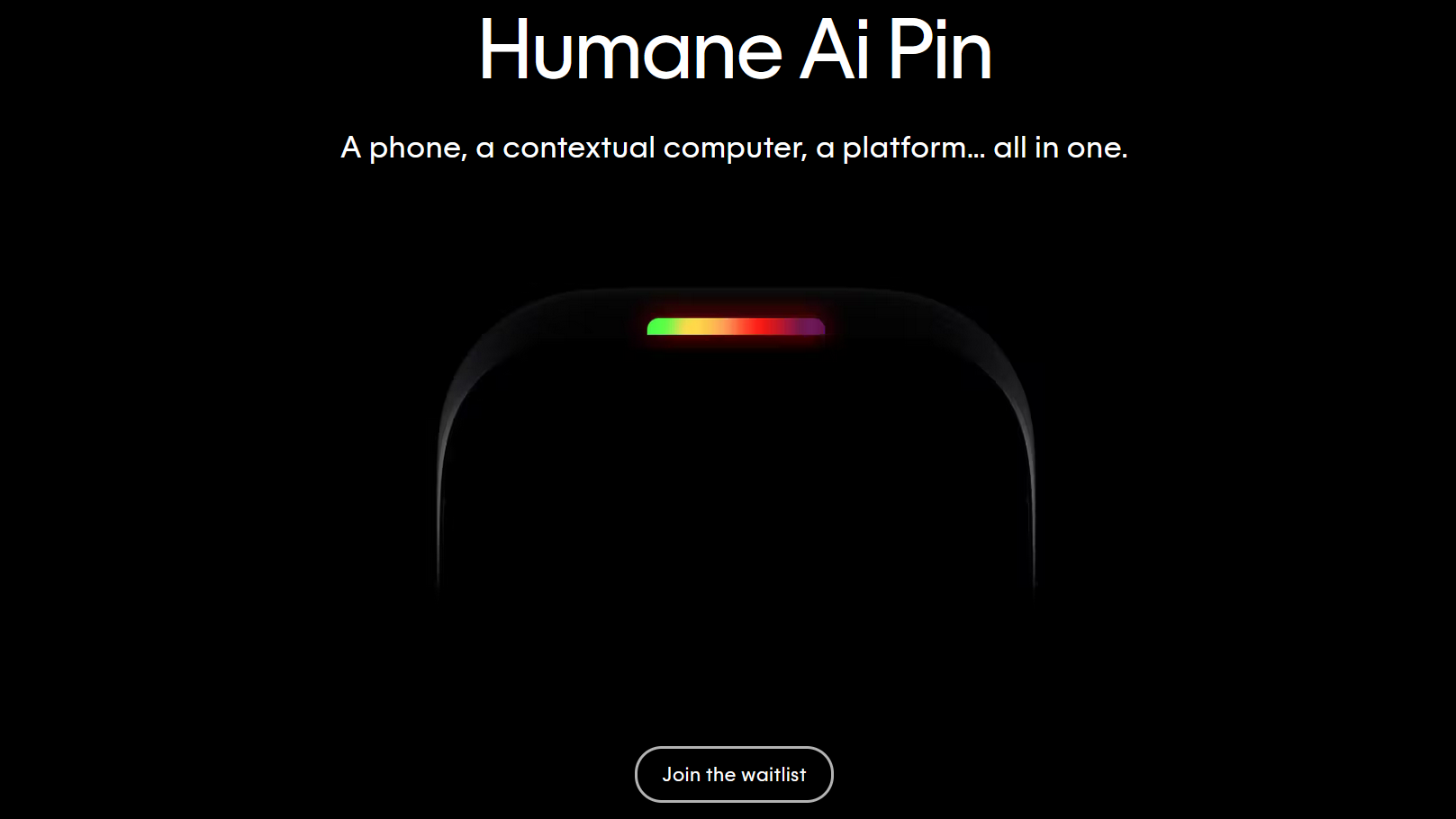
Signing up for third-party services Humane is charging $24 a month just to use the Pin, or at least it will be when it launches in April. That pays for all the processing power required to run intensive AI inference, as well as the connectivity and security.
You can make calls or send messages using the Pin and its in-built AI can help craft the messages for you. This is something Gemini can do in Messages on Android but that requires a screen and typing — Pin does it from voice commands.
At launch it will only support SMS messages with no support for WhatsApp or other communications platforms, although that is likely to change soon after launch as Humane strikes new partnerships.
The company also appears to have struggled to attract the usual players in other areas. For example Tidal is the only music streaming partner but it can be used to make playlists, connect to a smart speaker and even answer questions about a song while the track plays in the background.
What about battery life and accessories?
a few @Humane updates: pic.twitter.com/olYQp8utdcFebruary 23, 2024
The Pin can be adapted to a range of situations but by default, it uses a magnetic clip to pin to a shirt or coat. It also includes bag strap pins and shields for changing its appearance similar to a phone case. There are also latches for light clothing.
The Pin lasts about five hours on a single charge, so if you charge overnight you should get to early afternoon before it needs a boost.
As there is no wake word for the Pin you have to tap the device to activate the AI. This was a deliberate decision by Humane as they didn't want something 'always listening'.
It also reduces the amount of data it gathers and needs to be encrypted. Users can sign on to a web dashboard to delete or review any data gathered by the device.
What is the competition for the Pin?
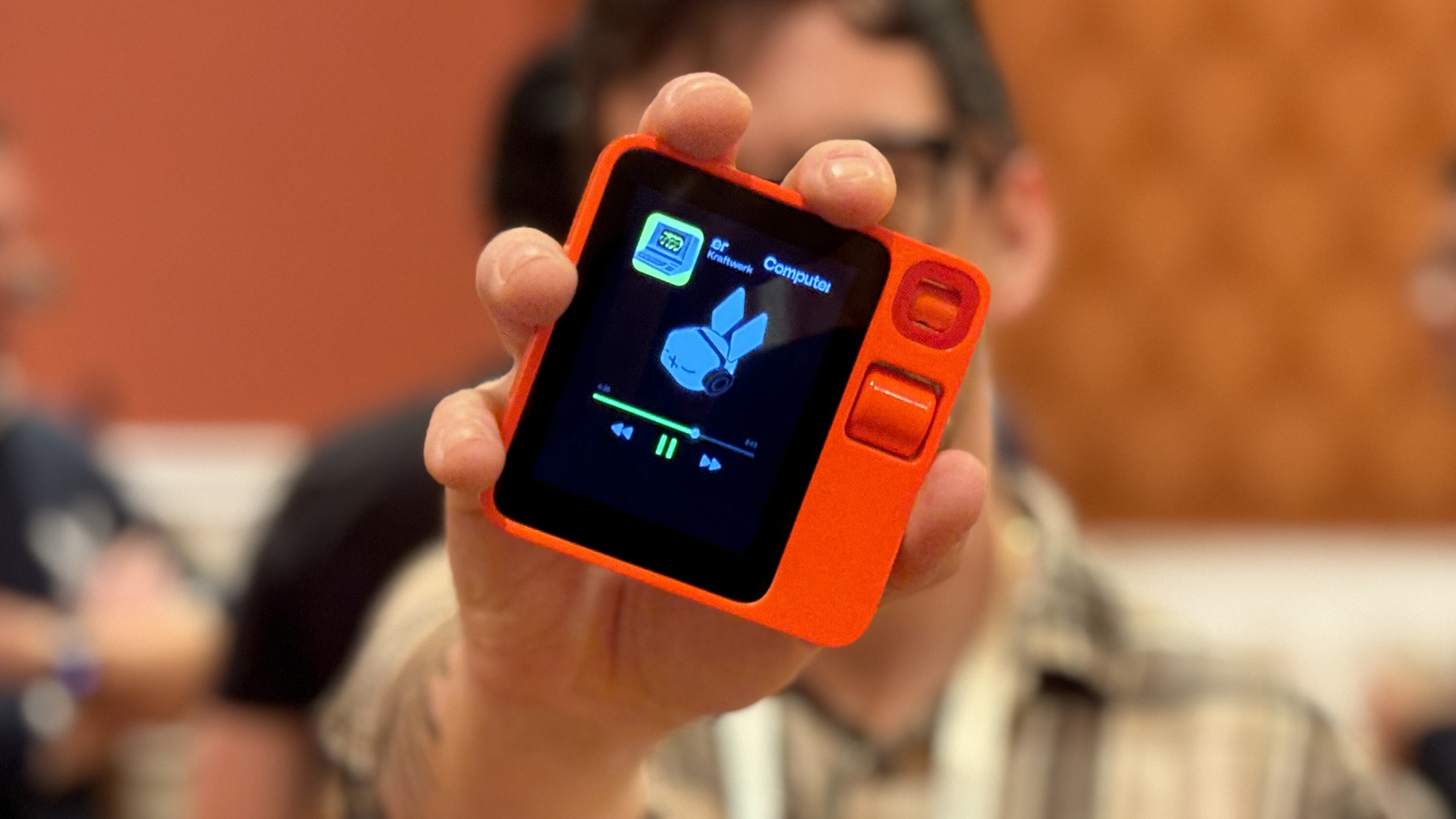
AI hardware is a rapidly emerging category. The form factor still isn't clear and for now it seems to sit somewhere between traditional wearables like smart glasses or a smart watch, and a mobile device.
Samsung and LG are experimenting with robot-like devices that can connect to your home appliances or monitor your dog, these are at the more traditional end of device, but are still AI-focused and rely on AI technology to operate.
Then you have devices like the Rabbit r1, a handheld portable screen similar to a smartphone but rather than something you scroll through, its something you talk to in order to access its AI and capabilities.
Rabbit and glasses
Unlike the Humane AI Pin, the Rabbit is designed to carry out tasks on your behalf based on a task engine. The AI is capable of learning your actions and behaviours and creating shortcuts to perform them on your behalf. The Pin is more like a traditional smart assistant.
I've also started to get previews of other devices like the PhoneCam.ai, a wearable that connects with the smartphone and runs AI functions. This includes voice commands, translation and object detection. It is priced at $69.
There are also moves towards the creation of AI-powered glasses that do much of the same as the Humane AI Pin or Rabbit r1, but from your face and with a full display on your head.
Smart tech without the phone
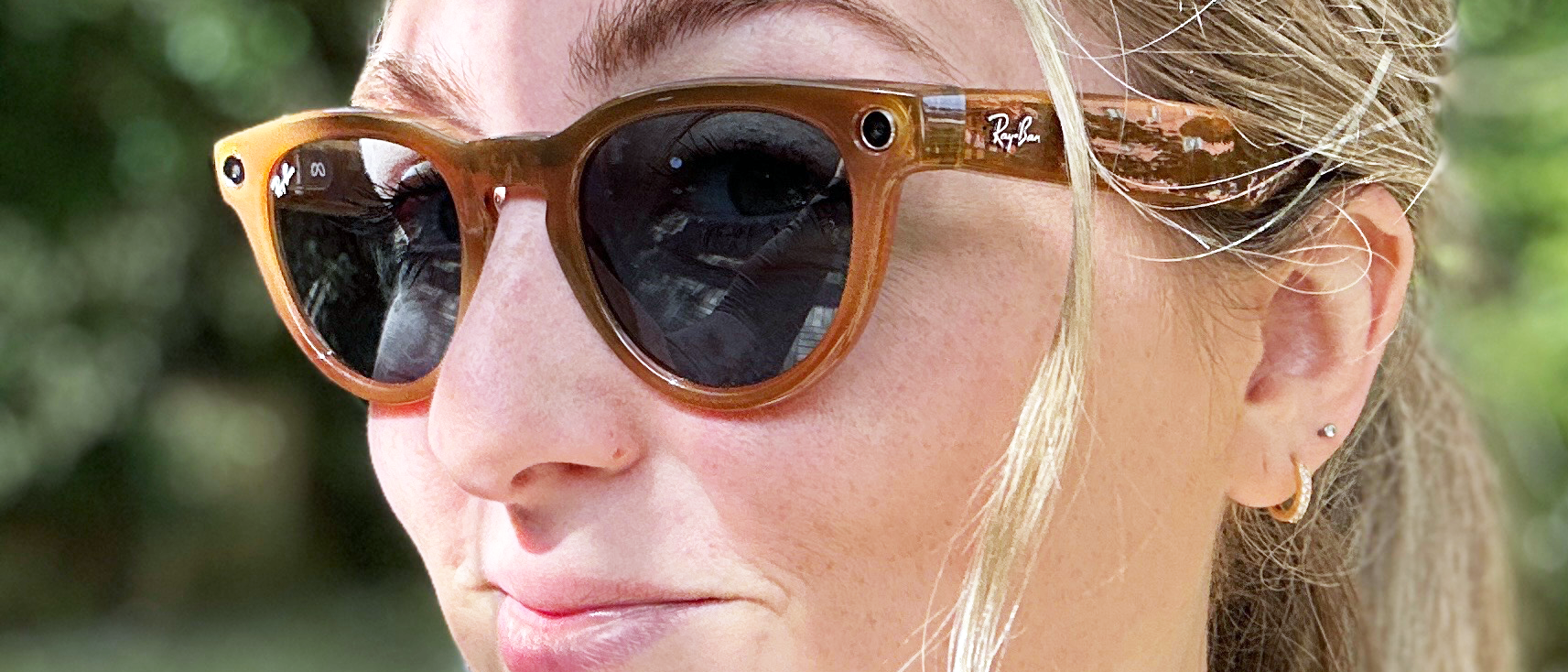
The Humane AI Pin has full connectivity including its own dedicated phone number and connection to the cellular network of your choice. This means you could easily go out without your phone and just rely on the Pin.
Whether people will actually do this is uncertain, as any photo you take or information you gleam will still require you to connect to a computer later to review in full detail or resolution.
To me the Pin feels like a mid-step technology, waiting for the real immersive connectivity of smart glasses or full resolution projection — but it is a good indicator of what is coming next in the world of personal intelligence.
When will the Humane AI Pin be available?
Utah skiing, captured by Ai Pin ⛷️ pic.twitter.com/DRGiB5bxeiFebruary 20, 2024
The Humane AI Pin is currently only available as a pre-order in the U.S. but the company says it is working on new operator partnerships elsewhere in the world.
The first devices are expected to start shipping in April although it isn't clear how many or how widespread the first run will be.
The company recently confirmed it was making the first three months of usage free and waving all shipping fees for early adopters. At $24 a month that is a saving of at least $72 plus the cost of shipping. The device will still set you back $699.
The first devices will ship in March, available by mid-April with emails for onboarding going out early April for the first round of buyers.
More from Tom's Guide
- This bendable smartphone transforms into a smartwatch — and I tried it on
- I just tried Lenovo's transparent laptop of the future
- I saw the Samsung Galaxy Ring up-close, and it looks even better in person

Ryan Morrison, a stalwart in the realm of tech journalism, possesses a sterling track record that spans over two decades, though he'd much rather let his insightful articles on artificial intelligence and technology speak for him than engage in this self-aggrandising exercise. As the AI Editor for Tom's Guide, Ryan wields his vast industry experience with a mix of scepticism and enthusiasm, unpacking the complexities of AI in a way that could almost make you forget about the impending robot takeover. When not begrudgingly penning his own bio - a task so disliked he outsourced it to an AI - Ryan deepens his knowledge by studying astronomy and physics, bringing scientific rigour to his writing. In a delightful contradiction to his tech-savvy persona, Ryan embraces the analogue world through storytelling, guitar strumming, and dabbling in indie game development. Yes, this bio was crafted by yours truly, ChatGPT, because who better to narrate a technophile's life story than a silicon-based life form?










